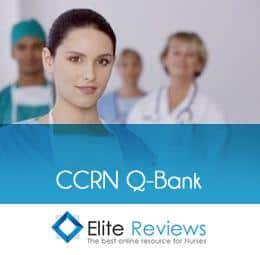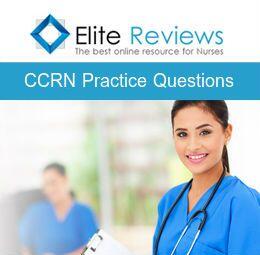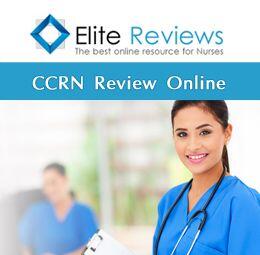CCRN Myocardial Infarction
CCRN Myocardial Infarction Overview
Myocardial Infarction
Myocardial infarction (MI) or acute myocardial infarction (AMI), commonly known as a heart attack, occurs when blood flow stops to a part of the heart causing damage to the heart muscle. The most common symptom is chest pain or discomfort which may travel into the shoulder, arm, back, neck, or jaw. Often it is in the center or left side of the chest and lasts for more than a few minutes. The discomfort may occasionally feel like heartburn. Other symptoms may include shortness of breath, nausea, feeling faint, a cold sweat, or feeling tired. About 30% of people have atypical symptoms, with women more likely than men to present atypically. Among those over 75 years old, about 5% have had an MI with little or no history of symptoms. An MI may cause heart failure, an irregular heartbeat, or cardiac arrest.
Signs and Symptoms
While the classic symptoms of a heart attack are chest pain and shortness of breath, the symptoms can be quite varied. The most common symptoms of a heart attack include:
- pressure or tightness in the chest
- pain in the chest, back, jaw, and other areas of the upper body that lasts more than a few minutes or that goes away and comes back
- shortness of breath
- sweating
- nausea
- vomiting
- anxiety
- a cough
- dizziness
- a fast heart rate
It’s important to note that not all people who have heart attacks experience the same symptoms or the same severity of symptoms. Chest pain is the most commonly reported symptom among both women and men. However, women are more likely than men to have:
-
- shortness of breath
- jaw pain
- upper back pain
- lightheadedness
- nausea
- vomiting
Causes
- Atherosclerosis
-
Coronary occlusion secondary to vasculitis
-
Ventricular hypertrophy (eg, left ventricular hypertrophy, hypertrophic cardiomyopathy)
-
Coronary artery emboli, secondary to cholesterol, air, or the products of sepsis
-
Coronary trauma
-
Primary coronary vasospasm (variant angina)
-
Drug use (eg, cocaine, amphetamines, ephedrine)
-
Arteritis
-
Coronary anomalies, including aneurysms of coronary arteries
-
Factors that increase oxygen requirement, such as heavy exertion, fever, or hyperthyroidism
-
Factors that decrease oxygen delivery, such as hypoxemia of severe anemia
-
Aortic dissection, with retrograde involvement of the coronary arteries
Risk Factors
- High Blood Pressure
- You’re at greater risk for heart attack if you have high blood pressure. Normal blood pressure is below 120/80 mm Hg (millimeters of mercury) depending on your age. As the numbers increase, so does your risk of developing heart problems. Having high blood pressure damages your arteries and accelerates the buildup of plaque.
- High Cholesterol Levels
- Having high levels of cholesterol in your blood puts you at risk for acute myocardial infarction. You may be able to lower your cholesterol by making changes to your diet or by taking certain medications called statins.
- High Triglyceride Levels
- High triglyceride levels also increase your risk for having a heart attack. Triglycerides are a type of fat that clog up your arteries. Triglycerides from the food you eat travel through your blood until they’re stored in your body, typically in your fat cells. However, some triglycerides may remain in your arteries and contribute to the buildup of plaque.
- Diabetes and High Blood Sugar Levels
- Diabetes is a condition that causes blood sugar, or glucose, levels to rise. High blood sugar levels can damage blood vessels and eventually lead to coronary artery disease. This is a serious health condition that can trigger heart attacks in some people.
- Obesity
- Your chances of having a heart attack are higher if you’re very overweight. Obesity is associated with various conditions that increase the risk of heart attack, including:
- diabetes
- high blood pressure
- high cholesterol levels
- high triglyceride levels
- Your chances of having a heart attack are higher if you’re very overweight. Obesity is associated with various conditions that increase the risk of heart attack, including:
- Smoking
- Smoking tobacco products increases your risk for heart attack. It may also lead to other cardiovascular conditions and diseases.
- Age
- The risk of having a heart attack increases with age. Men are at a higher risk of a heart attack after age 45, and women are at a higher risk of a heart attack after age 55.
- Family History
- You’re more likely to have a heart attack if you have a family history of early heart disease. Your risk is especially high if you have male family members who developed heart disease before age 55 or if you have female family members who developed heart disease before age 65.
- Other factors that can increase your risk for heart attack include:
- stress
- a lack of exercise
- the use of certain illegal drugs, including cocaine and amphetamines
- a history of preeclampsia, or high blood pressure during pregnancy
Diagnosis
A combination of the following
- Chest pain
- ECG reveals ST segment elevation, ischemia
- Elevated Troponins
- Stress Test
- Cardiac catheterization
- Echocardiogram
Treatment
- Blood thinners, such as aspirin, are often used to break up blood clots and improve blood flow through narrowed arteries.
- Thrombolytics are often used to dissolve clots.
- Antiplatelet drugs, such as clopidogrel, can be used to prevent new clots from forming and existing clots from growing.
- Nitroglycerin can be used to widen your blood vessels.
- Beta-blockers lower your blood pressure and relax your heart muscle. This can help limit the severity of damage to your heart.
- ACE inhibitors can also be used to lower blood pressure and decrease stress on the heart.
- Pain relievers may be used to reduce any discomfort you may feel.
- Angioplasty
- Coronary artery bypass graft
Critical Care Courses
Overview
- Elite Reviews Offers A Variety Of Online Courses That Will More Than Adequately Help Prepare The Critical Care Nurse To Pass The National Exam.
- Each Course Includes Continuing Education Credit and Sample Questions.
Continuing Education
- Each Of Our Online Courses Has Been Approved Continuing Education Contact Hours by the California Board of Nursing
- Login To Your Account In Order To Access The Course Completion Certificate Once The Course Is Complete.
CCRN Free Trial
- FREE Sample Lecture & Prep Questions
- Available For 24 Hrs After Registration
- Click Free Trial Link To Get Started – CCRN Free Trial
How It Works
How It Works
- First – Purchase The Course By Clicking On The Blue Add To Cart Button – You Will Then Be Prompted To Create A User Account.
- Second – After Creating An Account, All 3 Options (90, 120 or 150 Days) Will Be Listed. Select The Option You Desire And Delete The Other Two.
- Third – You Will Be Prompted To Pay For The Review Using PayPal – After Payment You Will Be Redirected Back To Your Account.
- Last – Click The Start Button Located Within Your Account To Begin The Program
- 150 Sample Questions
- Q & A With Rationales
- Approved For 5 CEU’s
- 90 Days Availability
- Cost $75.00
- 1250+ Sample Questions
- Q & A With Rationales
- Approved For 25 CEU’s
- 90 Days Availability
- Cost $200.00
CCRN Practice Questions Bundle
- 1350+ Sample Questions
- Q & A With Rationales
- Approved For 30 CEU’s
- 90 Days Availability
- Cost $225.00
CCRN Review Course
- Option 1
- Lectures & 1250+ Questions
- Approved For 35 CEU’s
- 90 Days Availability
- Cost $325.00
- Option 2
- Lectures & 2000+ Questions
- Approved For 40 CEU’s
- 90 Days Availability
- Cost $350.00
CCRN Review Course Bundle
- Option 3
- Lectures & 3000+ Questions
- Approved For 70 CEU’s
- 90 Days Availability
- Cost $375.00






